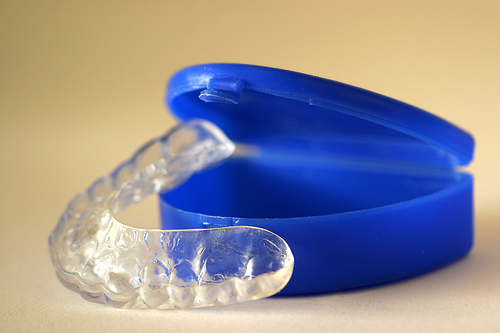Can’t Take Another Bite?
June 20th, 2024

We’re not talking post-holiday “I can’t eat another bite” discomfort. No, we’re here to talk about the discomfort caused by bite pain.
Usually, our teeth and jaws work so harmoniously that we don’t even think about biting and chewing. But when a sharp jolt or a dull ache accompanies any sort of pressure on your tooth, it’s time to call hartstone dental. Let’s look at a few of the possible causes.
- Tooth Decay
When a cavity reaches below the enamel and into the dentin, the middle part of the tooth, you might feel discomfort and sensitivity. If a cavity reaches the inner pulp, which contains the tooth’s blood supply and nerves, it’s not only very painful, it can lead to a serious infection called an abscess.
Root canal treatment can help save a tooth when decay has reached the pulp, but prevention is always the best option! Good dental hygiene, regular checkups, and prompt treatment of small cavities will help prevent deep cavities from forming.
- Damaged Dental Filling
A loose or damaged filling can be uncomfortable. Even worse, bacteria can get under a damaged filling where your toothbrush and floss can’t reach, causing decay which can eventually reach the pulp if undetected.
During your regular checkups, Dr. Joel Hartjes and Dr. Jon Szewczyk will look for any signs of decay around and under your fillings, and will find any fillings which need replacing. If you notice a loose filling, or suffer discomfort when you bite down on a filling, don’t wait until your next checkup to visit our Middleton, WI office.
- Malocclusion
When your teeth and jaws aren’t aligned properly, you can’t bite comfortably. And that can be just one of the troubles caused by a malocclusion, or poor bite. Alignment problems can include difficulty eating, speaking, and sleeping, tooth damage, headaches and jaw pain, and facial asymmetry.
If your bite pain is the result of tooth and/or jaw misalignment, we can refer you to an orthodontist to evaluate the way your teeth and jaws are working together.
- Bruxism (Tooth Grinding)
Your jaws can provide more than 20 pounds of pressure to your teeth when you need to chew food. When you grind your teeth, your jaws can produce hundreds of pounds of pressure on your teeth all night long. It’s no wonder you wake up with tooth or jaw pain. Over time, nightly grinding will damage enamel and can chip and even crack teeth.
Your dentist can create a custom-made nightguard that will protect your teeth from grinding pressure—relieving tooth and jaw pain, preventing more serious damage, and giving you a better night’s sleep!
- Cracked Tooth
A cracked cusp or a crack in your tooth needs to be treated as soon as possible. Some cracks can be treated by Dr. Joel Hartjes and Dr. Jon Szewczyk, some might require a referral to an endodontist or an oral surgeon, and some cracked teeth are so badly damaged that they require extraction.
A painful cracked tooth can be obvious after a trauma, or it might not be obvious at all. So whenever you suffer dental trauma, call our office immediately for instructions. Speedy medical attention might be the difference between a repaired tooth and a lost tooth. (And save yourself from avoidable trauma by wearing your mouthguard whenever it’s appropriate!)
- Infection/Abscess
When the pulp inside a tooth is infected or inflamed, the result can be a painful abscess. Abscesses are pockets of pus caused by bacterial infection. An abscess isn’t just painful, it’s dangerous, because it can cause bone loss around the tooth and further infection if it’s not treated promptly.
Continuous severe pain, a swelling in the gums near your tooth, redness, fever, chills, a bad taste in your mouth, or bad breath can all be signs of a tooth abscess. See your dentist as soon as possible if you have any symptoms of an abscess. Your dentist may recommend a root canal procedure or refer you to an endodontist for root canal treatment or endodontic surgery.
Pain is an important signal that something is wrong, and you need to get to the root of the problem. Conditions which cause you pain often become more serious over time. For your comfort and your health, make an appointment at our Middleton, WI office right away whenever you hesitate to take another bite.


